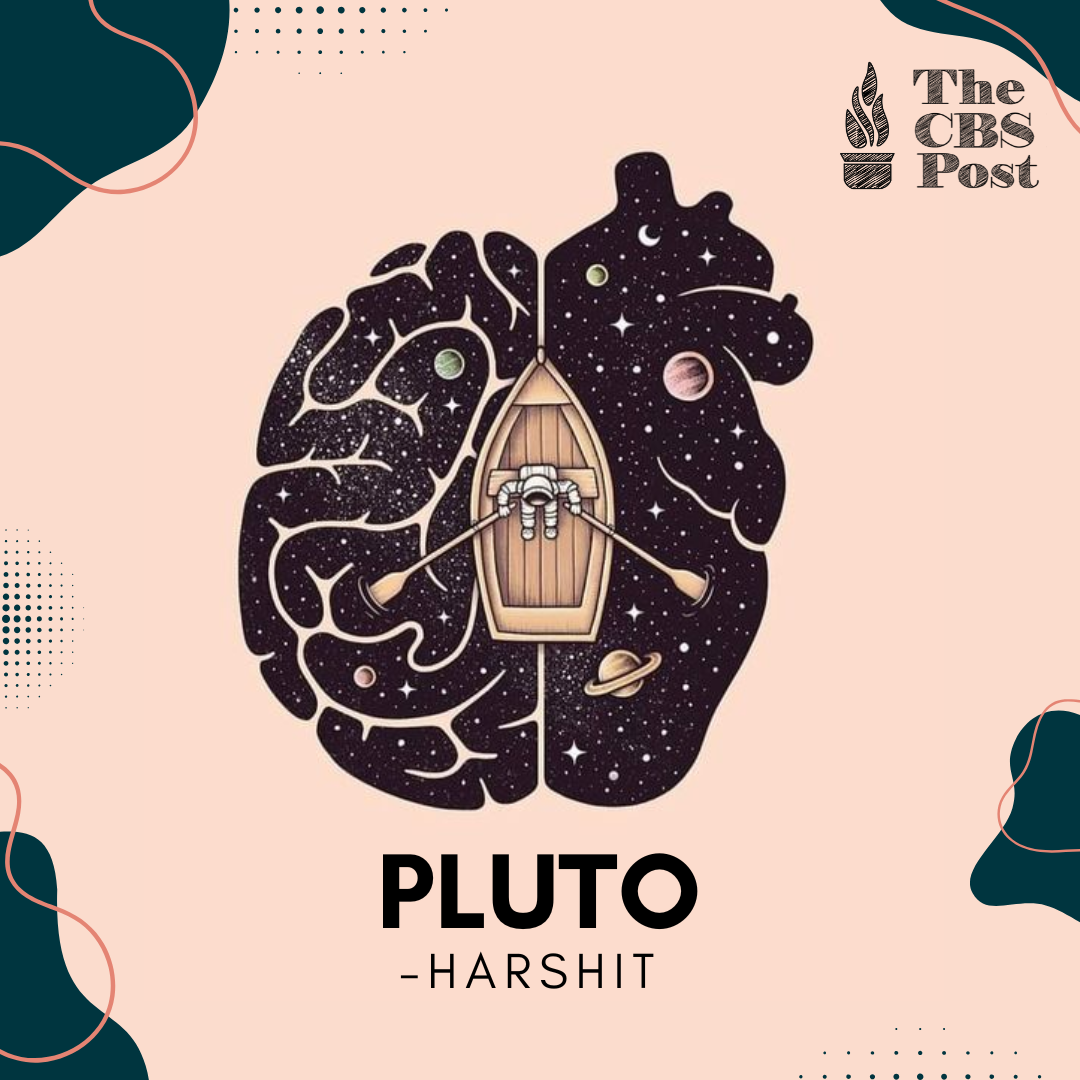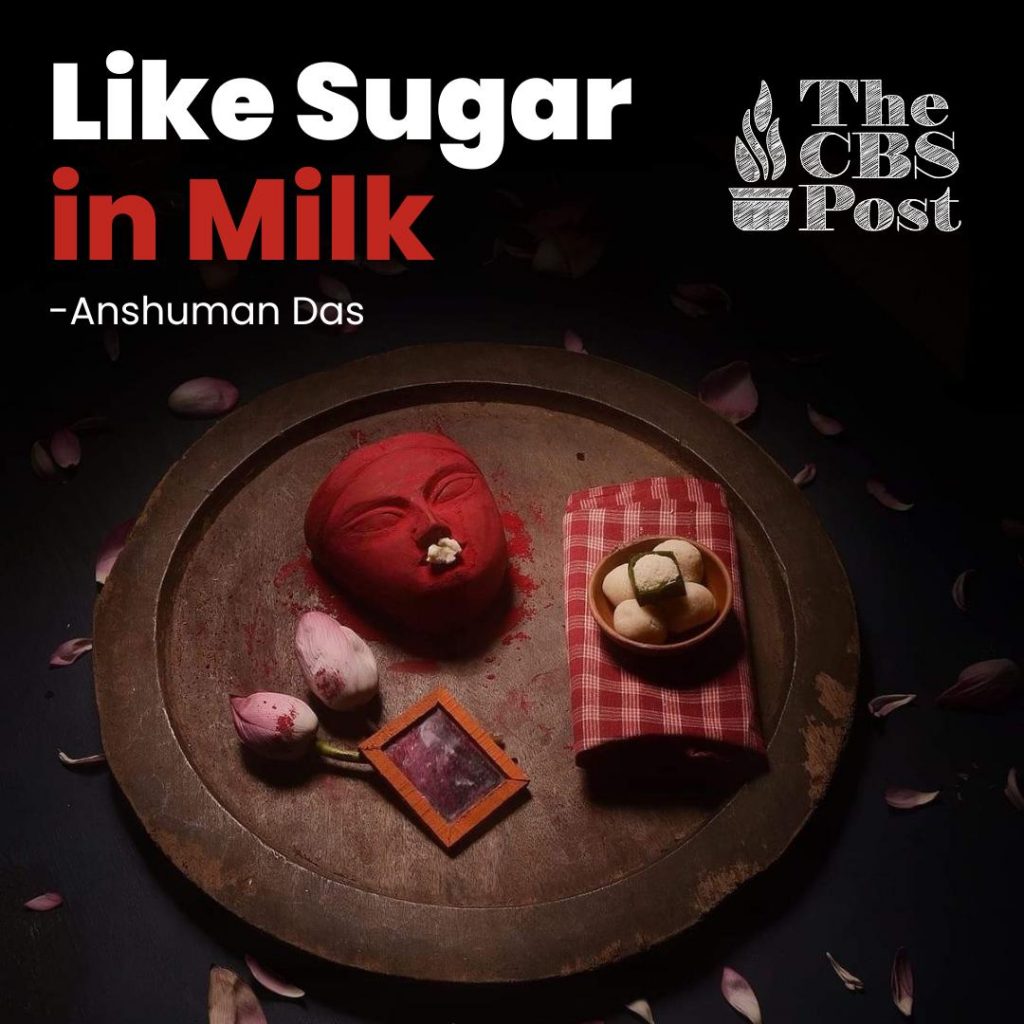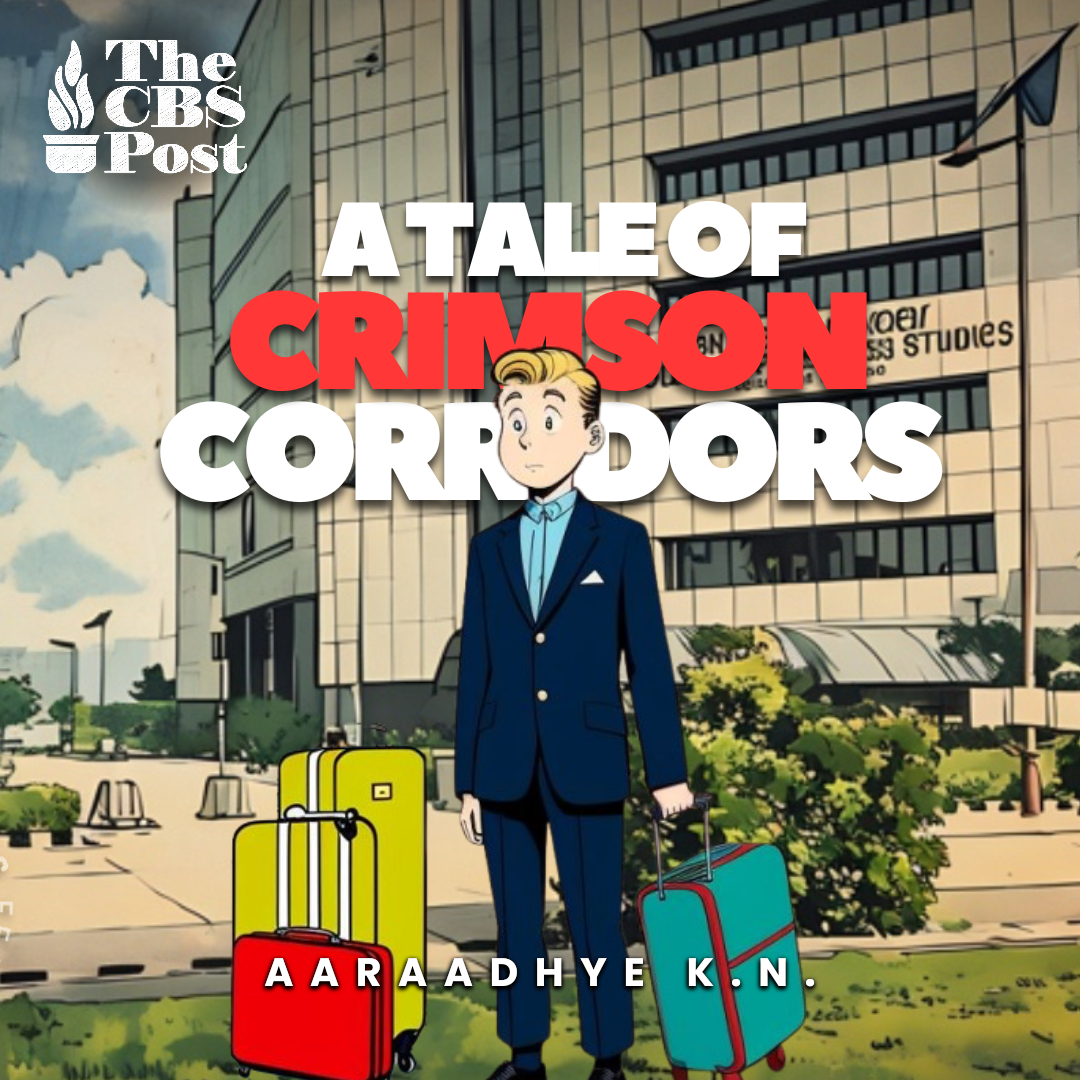Pluto
By Harshit, BMS’25
Yesterday, as I delved into a book, turning pages and their smell mesmerizing me, I realized some profound insights. Today, revisiting its pages, a fresh perspective emerged. I anticipate that tomorrow will unveil yet another angle. What struck me was the malleability of seemingly mundane words—‘is,’ ‘am,’ and ‘are’—which transform with each context. The catalyst for this metamorphosis? You. Your thoughts and present circumstances imbue these words with new hues, altering their meaning from yesterday’s perception.
Interesting, right? This is simple psychology. To begin with, are you aware that the colors around you—the sky, your dark roof, that shirt you are wearing, or maybe the screen you passionately stare at—play a key role in deciding how you perceive the things you do? For your insight section of Notion, the blue color makes you calm and productive; just don’t keep it that dense, or you may start crying soon. Psychological evidence suggests looking at the sky, giving your worries to the clouds, and letting them go. For your age, it will mean an essential release of serotonin, which is associated with light blue colors and open spaces. Yellow is a mood booster too.
A cumulative understanding of such facts helps in building your environment, and thus, your perception of having fewer preparatory leaves as good or bad. Well, that depends on other factors too. Anyway, a similar understanding of psychology comes into play with the hot topic of mental health today. Especially for college students, mental health is critical as they are transitioning from a pond of possibilities to an ocean. An ocean so big and uncertain that they may struggle to find themselves in it. Optimists suggest it is okay to feel this way, but there is something more interesting about it.
Before jumping into the generic suggestion of trying to stay happy all the time, I’d like to shed light on the fact that, in my generation, as per the ICMR, almost 12–13% of teenagers find themselves in emotional struggle and psychological disorders like depression, anxiety, and substance abuse. I would stress the argument that “teenagers find themselves” in these situations. A majority of them are ambiguous about the reason for their stress. It’s like someone hitting you in a dark room; you can’t say where it comes from, and you can’t say where it’s going to hit. Is it academic pressure, or maybe a failed friendship or no friendship at all? As dynamic as the problem may sound, the solution is quite simple.
But we won’t discuss the solution here, for you can find some Ph.D.-level advice on cognitive appraisal easily. Let’s talk about yourself. A teenage student, growing every day, watching things, thinking, then watching again, and then thinking again, watching, thinking, watching, thinking, watching, thinking—how long until it cracks? No one can stop it; it’s your kingdom with no enemies. You are the king, but do you know it?
By knowing, I mean, do you realize you are THE King? That 12–13% don’t. I am here to give you a strong perspective, not about succeeding in life, not about how you can be perfect and make people like you. Honestly, I wish I knew that. Let me tell you it’s not the best, biggest, finest, greatest, supreme, or most magnificent advice of all time. It is only the thought of this time that matters. Take this moment to realize your presence in the room you are sitting in, or maybe the metro you are in. Wherever you are, just feel your presence. Maybe observing your body will help. Who can move you? Who can prompt you to pick up a pen from your study drawer and start writing the best story ever written, or ask that pretty stranger where they are from? Clearly, I am not the one stopping you, neither is the distance from the table nor the fact that you have to change at the next station. What stops us is us. Now, take time to see the fact that you are tiny, relative to this universe, and your actions don’t matter as much as you think. Whether you laugh or cry, there will always be 8 planets in our solar system, our galaxies will one day submerge in a black hole, and people will keep dying and giving birth.
So, what you do to yourself will matter only to you or some people in your vicinity. Then why do something that makes you dull? Again, you are the king, but I never said of the world; it’s only yourself. Start taking responsibility for what happens to you or what you do. If you are one of that 13%, I implore you to realize that your life is in your hands, and you need to make your hands capable of handling it—worthy and strong enough to fulfill what you want to do in your life.
It would be quite right to say that, with great responsibility, comes great power. Railing back to psychology, we began with criticizing our environment and the colors as well, but why do I say it’s your responsibility now?
Interesting, right? Give it a thought.




Comments